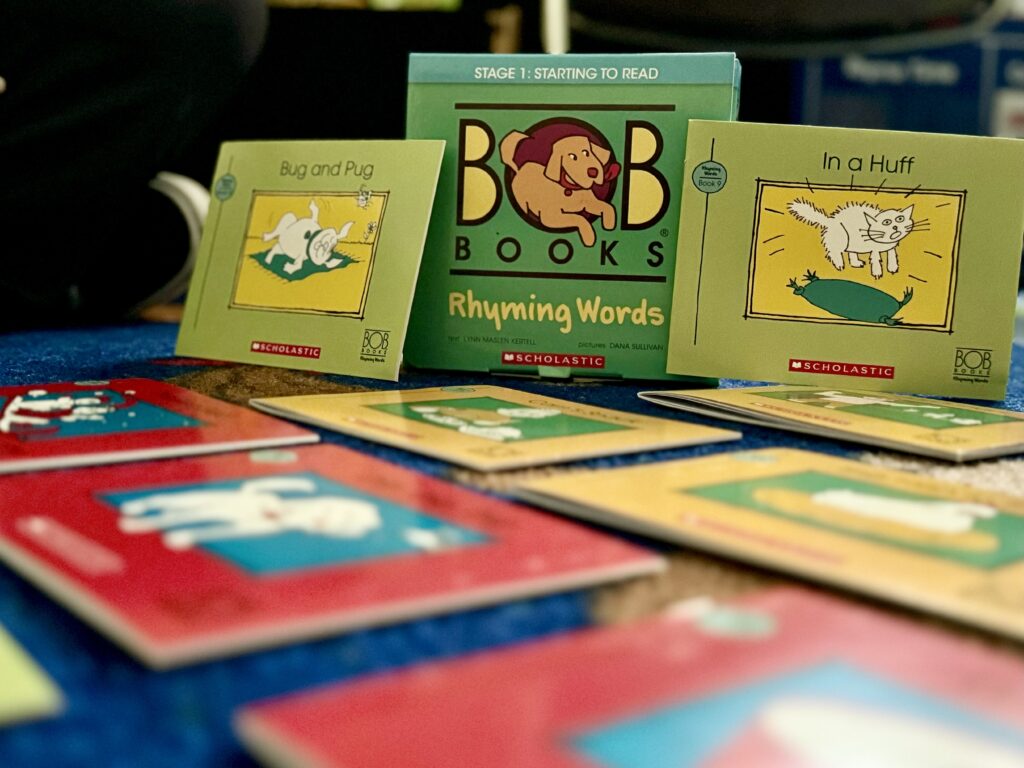Northeast Georgia elementary teachers say Wilson Reading System, a phonics literacy program for special education children, has been successful in improving literacy rates.
The Wilson Reading System (WRS) has been implemented in over 40 Northeast Georgia schools to support K-12 students in special education programs. Since its introduction 17 years ago, teachers report increases in testing scores and literacy rates for children.
“It’s a pretty significant impact,” said Dayna Kiley, director of special education for Gainesville Schools. “When kids understand the rules and why letters say the certain things that they do, it takes a lot of that guess work out, that anxiety out, and they have a tool to work through what they’re readying.”
The Wilson Reading System utilizes phonics to teach literacy in a more strict and proficient method. WRS is a three-tiered system that is designed to assist students and adults in learning how to read and write. Wilson Reading System specifically targets individuals with learning disabilities and literacy difficulties.
WRS has two main literacy programs for K-12 special education. WRS Fundations utilizes phonics and fluency as an early prevention and intervention tool in younger readers. WRS Just Words is an accelerated program for advanced readers with mild literacy gaps.

The Cost of Literacy
The Wilson Reading System materials are expensive or inaccessible to some public schools. WRS sells a variety of materials, such as testing forms, activity sets and teacher’s kits, for all levels within the program ranging from $10 to nearly $3,000. All materials designed for WRS are published by Wilson Language Training.
The Fundations Classroom Set Level 1 is priced at $2,299. Some products in this kit include the Fundations® Teacher’s Manual 1, the Fundations® Letter Board K-1 and My Fundations® Journal. This kit provides materials for one teacher and 25 students. Many products sold in the Fundations Classroom Set Level 1 can be sold separately for a lower cost.
Kiley claims that the Gainesville City School System received the IDEA Capacity Building Grant. This $50,000 grant was spent entirely on WRS materials for eight elementary and middle schools in Gainesville, including Enota Multiple Intelligence Academy and Fair Street International Academy.
“I’m so thankful that someone, I guess Dayna, our director, wrote the grant and we were able to get all the materials,” said Heather Hagye, special education teacher at Enota Multiple Intelligence Academy. “It’s really wonderful.”
Training and Certification
Educators are not required to complete certification training to teach with the Wilson Reading System. WRS offers two optional certification courses for teachers seeking certification. WRS also provides a required three-day training course for all teachers prior to classroom usage.
Hagye explains that the certification programs take a lot of time, work and money to complete. WRS offers Level I for $2,950 and Level II certification for $1,250. Additionally, each practicum requires 12-15 months of training.
The Academy of Innovation in Gainesville, Georgia, requires all educators to be WRS certified. Carol Henderson, the head of the Academy of Innovation, encourages all special education teachers to be certified with the Wilson Reading System.
"Unless you do that, get through that training and get a student into step four, it's hard to say you're really doing anything with fidelity," Henderson said.
Supplemental Tools
Phonics programs are not guaranteed to be successful for every special education student, despite previous success of the Wilson Reading System. Johanna Dean, assistant teacher at Discovery Point — Sugar Hill, says not all children benefit the same way from phonics-based programs. Some children who have certain types of disabilities, including ADHD, autism and dyslexia, require more simplified instruction.
"It's not a perfect system for everyone," Dean said. "Some children with reading and learning disabilities comprehend more visual and simple learning methods, like games and picture books."

Dean provides other supplemental tools, such as literacy games and picture books, as simplified instruction for some students. "Alphabet Bingo — Trend Enterprise Inc.," "Rhyming Words — Bob Books" and "Rhyming Dust Bunnies" by Jan Thomas are activities for Dean's students to practice phonics, reading and writing, in a collaborative and interactive way.
Adriana Cascio is a journalism major at the University of Georgia.









Show Comments (1)